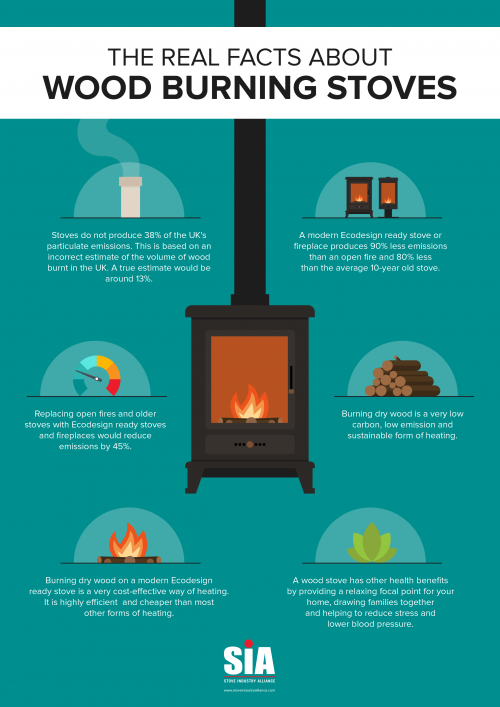Under a government ban which will come into force on May 1st 2021, owners of wood burners, stoves and open fires in England will no longer be able to burn the most polluting fuels.
This is a change first announced in the government’s 2019 Clean Air Strategy and aims to reduce emissions of air pollutants. It does not ban the use of wood burning stoves, just the two most polluting fuels which are sometimes burned in them.
Which Fuels are being Banned and Why?
House Coal: Coal is a fossil fuel and burning it emits large amounts of carbon dioxide into the atmosphere as well as particulates that increase air pollution and health dangers. Although its use is declining, the new ban speeds things up. Sales of bagged traditional house coal were phased out in February 2021, and the sale of loose house coal direct to customers will end by 2023.
Wet Wood: Whilst wood can be viewed as a carbon neutral fuel (since trees can be planted to replace the ones used), wet wood or unseasoned wood contains moisture which, when burned, creates more smoke and harmful particles of air pollution than dry wood. Added to this your stove will not work as efficiently as when using properly seasoned wood and burning wet wood can also damage your flue and chimney system. Sales of wet wood in small units (less than two cubic metres) was phased out in February 2021.
Which Fuels will still be Allowed?
Dry Wood: Dry wood or seasoned wood has a moisture content of 20% or less. It produces much less smoke and pollution than unseasoned wood. To come under this category, wood must be dried out before use. Seasoning is the process of removing the moisture from wood. This can be best achieved by stacking undercover in a way which allows the air to circulate the wood and carry the moisture away as it evaporates. You need to allow at least a year, ideally two for this process. Kiln dried wood ensures a low moisture content and also comes under this category.
Manufactured solid fuels: Solid fuels which produce low levels of pollution will be allowed under the changes. This includes wood briquettes, made from compressed dry sawdust and/or wood chips. Makers of solid fuels will need to show they have a very low sulphur content and only emit a small amount of smoke for them to be allowed.
It will still be permitted to sell wet wood in volumes greater than two cubic metres, as long as it is sold with advice on how to dry it before burning.
The Stove Industry Alliance (SIA) recently produced this infographic explaining the facts about wood burning stoves. It highlights the difference between Ecodesign stoves and older models and counters the recent misconception that stoves produce 38% of the UK’s particle emissions.

The SIA also produced this helpful animated video which explores some of the common misconceptions around wood burning stoves, explains the real facts and shows why wood burning stoves are low carbon, sustainable heating solutions that home owners can be proud of.
Cosy stoves are the beating heart of many a home across the UK. It is not the stoves themselves which are being banned, just the use of poor fuel. Rangemoors welcome these changes and have long supported the use of seasoned wood and approved solid fuels for our stoves. Although this fuel is more expensive, it burns more efficiently as well as more cleanly, which means more heat, lower flue maintenance costs and fewer health concerns.
If you are looking for the most efficient and eco-friendly stoves, check out our recent blog on EcoDesign Ready Stoves.
For details and prices on our kiln dried logs contact us.
